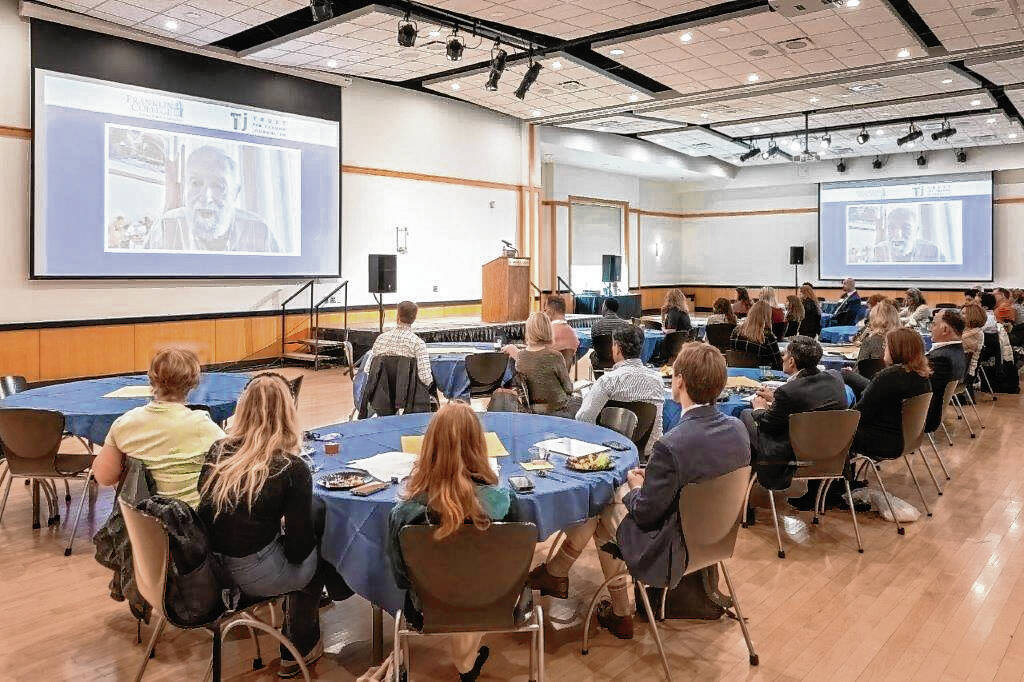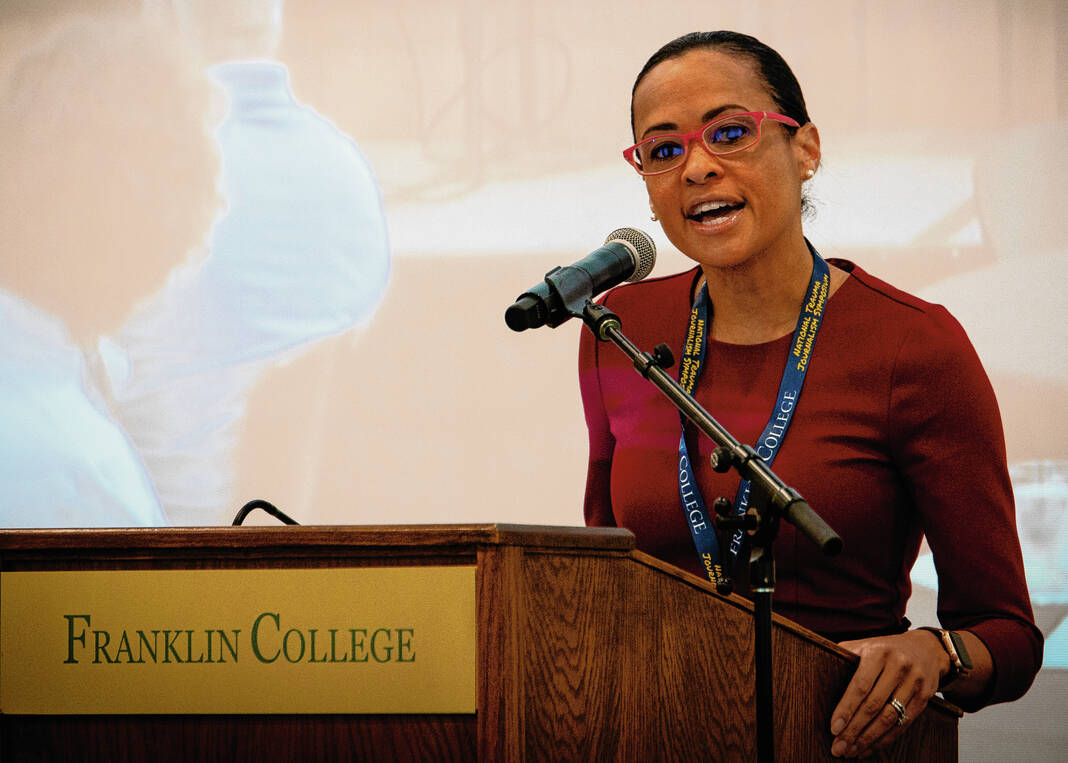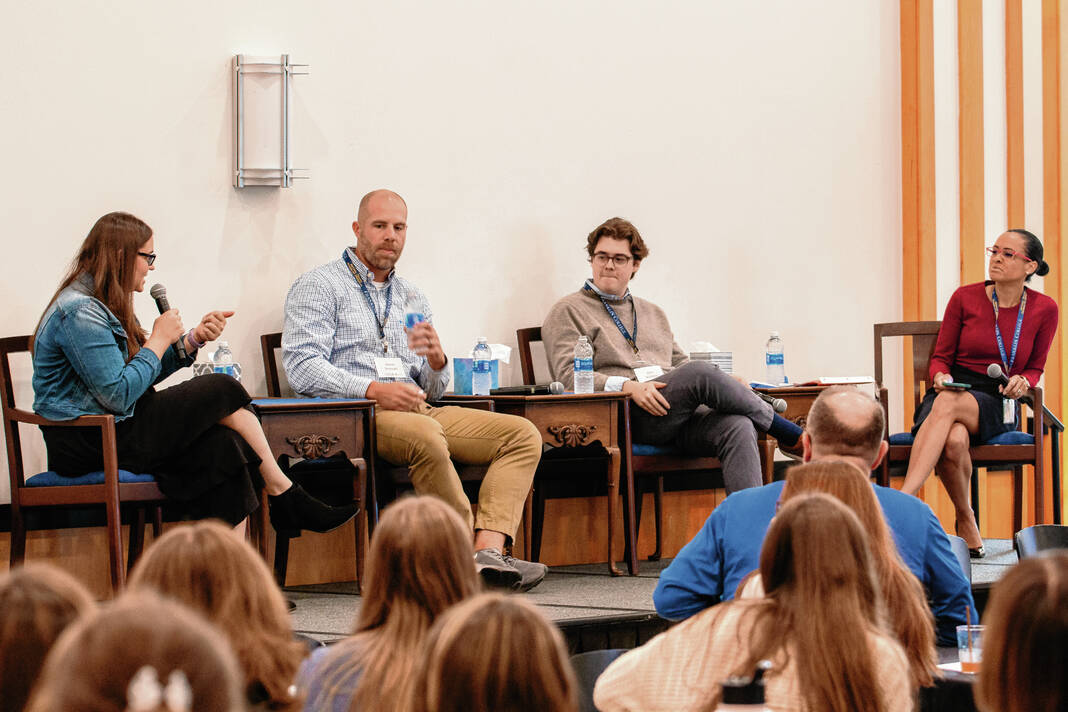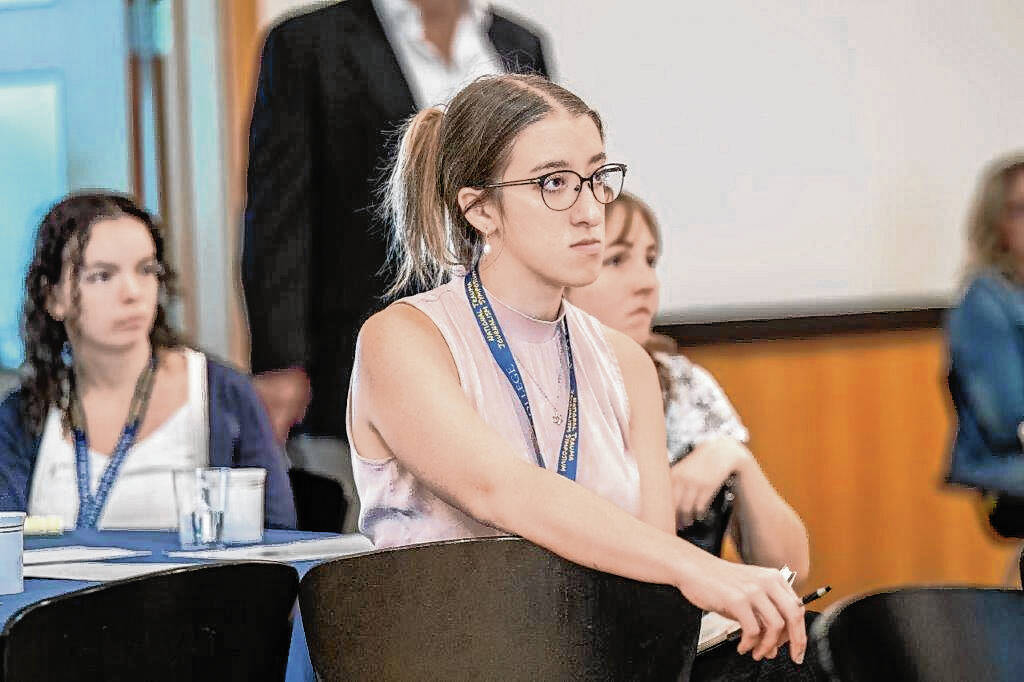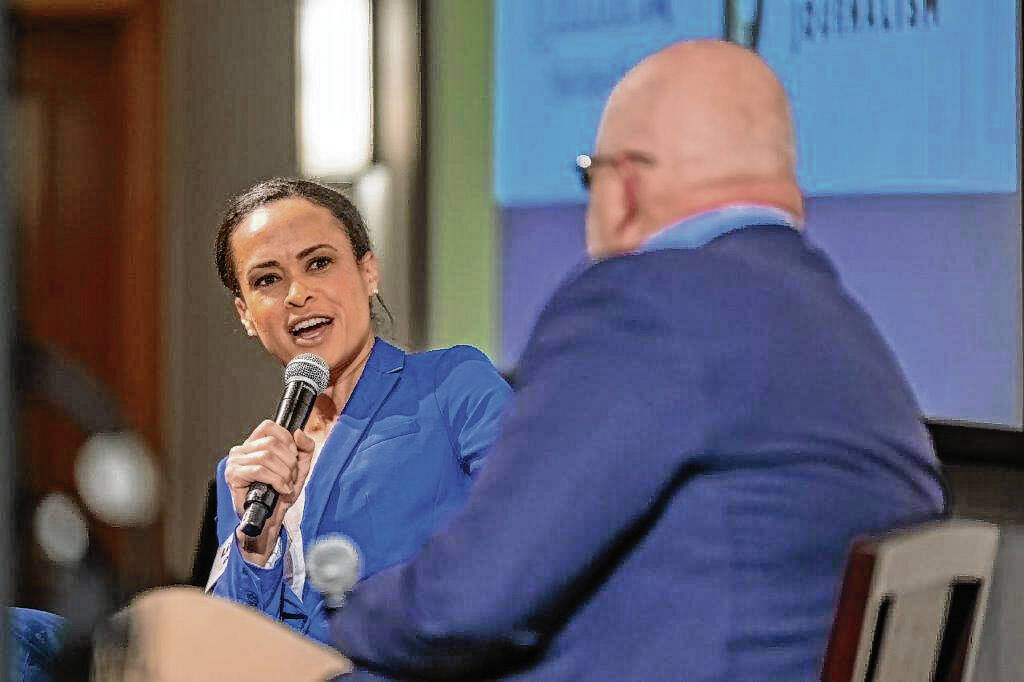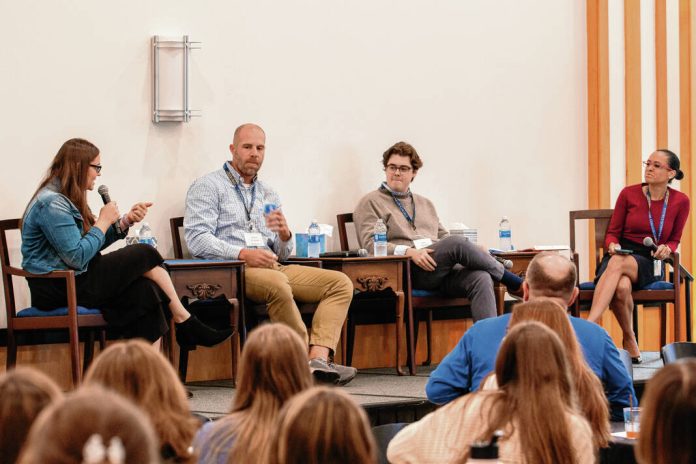
Panelists discuss covering school shootings during the 2023 National Trauma Journalism Symposium at Franklin College. The college’s Pulliam School of Journalism, in partnership with Trust for Trauma Journalism, has hosted the symposium the past three years, with this year’s event going on Thursday and Friday. SUBMITTED PHOTO
Every day brings a new trauma.
For journalists around the world, dealing with the worst the world has to offer is at the heart of the job. They’re on the scene for deadly automobile crashes, cover murders and other violent crimes, and reach out to victims in the aftermath of natural disasters.
Journalists know that it’s part of the job, and that their coverage is important. But that doesn’t take away from the harm the constant stream of trauma.
“While reporters strive to be non-biased and at some level detached, so they can be fair and, to the degree it’s humanly possible, objective about what they’re covering, they’re still human beings. And they’re going to be affected by what they’re seeing,” said John Krull, director of the Pulliam School of Journalism at Franklin College.
Addressing the impact it has on journalists is the focus of the National Trauma Journalism Symposium, being held this week at Franklin College in partnership with Trust for Trauma Journalism.
The two-day event features world-class speakers and information to equip journalists to better cover and recover from reporting traumatic stories.
“When you start to bring this issue up, you have some people who say, ‘Absolutely. This is long needed.’ Then you have a whole bunch of people who would rather not talk about it, because to talk about something is to admit and recognize there’s an issue among the ranks,” said Scot Thomasson, founder of Thomasson Global Consultants who has helped organize the symposium. “It’s really about awareness — there’s nothing to be ashamed of.”
The ability to host a national event addressing an often overlooked peril facing reporters has been rewarding for those involved, Krull said.
“It’s incredibly satisfying. We’ve had really, really impressive speakers over the years,” he said. “The public, the journalists and the students who attend come away with a feeling of being energized in a way — that there’s a way of coming to terms with this stuff.”
Franklin College has hosted the National Trauma Journalism Symposium for the past three years, working with Trust for Trauma Journalism. The organization is dedicated to supporting journalists who cover violence, conflict, combat and catastrophe by providing crucial services and support before, during and after their assignments in challenging environments.
The group was formed in 2018 to provide assistance and resources for journalists who had gone through traumatic experiences while on the job.
“Law enforcement, first responders and the military had been dealing with this for well over 20 years, and had mechanisms in place to mitigate trauma inherent to their own professions, but journalists had never addressed it,” Thomasson said.
The effects on journalists have long been overlooked and often mask themselves in high incidences of alcoholism, disintegration of personal relations and abandonment of the profession.
The symposium is designed not only for practicing journalists and journalism students but also for educators teaching these critical subjects in high schools and universities. Students studying psychology, social work, law enforcement and healthcare professions were also encouraged to attend.
After leaders of the Trauma for Trust Journalism decided they wanted to hold these symposium gatherings, they discussed the best host sites for them. Thomasson was part of those discussions, and he happened to have a deep connection to Franklin College.
His father, Dan Thomasson, was a trustee at the college in addition to being a longtime and well-respected journalist. Both of his grandparents graduated from the college, and his great uncle was Harry King, a member of the famed Franklin Wonder Five. The familial connection goes back to George King, founder of Franklin who provided the land that would become Franklin College.
Currently, Thomasson’s brother Sean serves on the college’s board of trustees.
“I said, if we want to do this right, let’s get it involved with a university, and I have the perfect university. Franklin College is a liberal arts school that focuses on the practicality of a liberal arts education, not the theoretical liberal arts education. As such, I thought it would be a great fit,” Thomasson said.
Thomasson reached out to his brother, who agreed it would be a great idea. They took it to Franklin College leadership, who wholeheartedly wanted to be part of it.
Since then, it has been a welcome resource for media from around the region, as well as for student journalists studying at Franklin College, Krull said.
“Journalists and journalism have been slow to recognize the importance of this subject. Every other field that comes into contact with traumatic events on a regular basis has begun to realize they need to pay more attention to the mental health of the people who do the work, better preparing them to engage with people who have been traumatized,” he said.
This year’s symposium features a wealth of perspective and insight into dealing with trauma journalism.
Linsey Davis, a national anchor for “ABC News Live Prime,” is scheduled to give a presentation on trauma awareness and reporting in turbulent times.
Dr. Cynthia Vinney, a psychologist and author of books such as “Psychology of Popular Media Culture,” focuses on the concept of media psychology. Dr. Deborah Beidel, a psychologist and director of University of Central Florida RESTORES clinical research center, will talk about recognizing the impact of trauma on fellow journalists and building peer support networks.
Among the other speakers were Dr. Alyse Ley, director of the Prevent 2 Protect project at Michigan State University; Tamara Cherry, author of “The Trauma Beat: A Case for Re-Thinking the Business of Bad News,” and Susan Hendricks, a former CNN and HLN anchor and author “Down the Hill: My Descent into the Double Murder in Delphi.”


